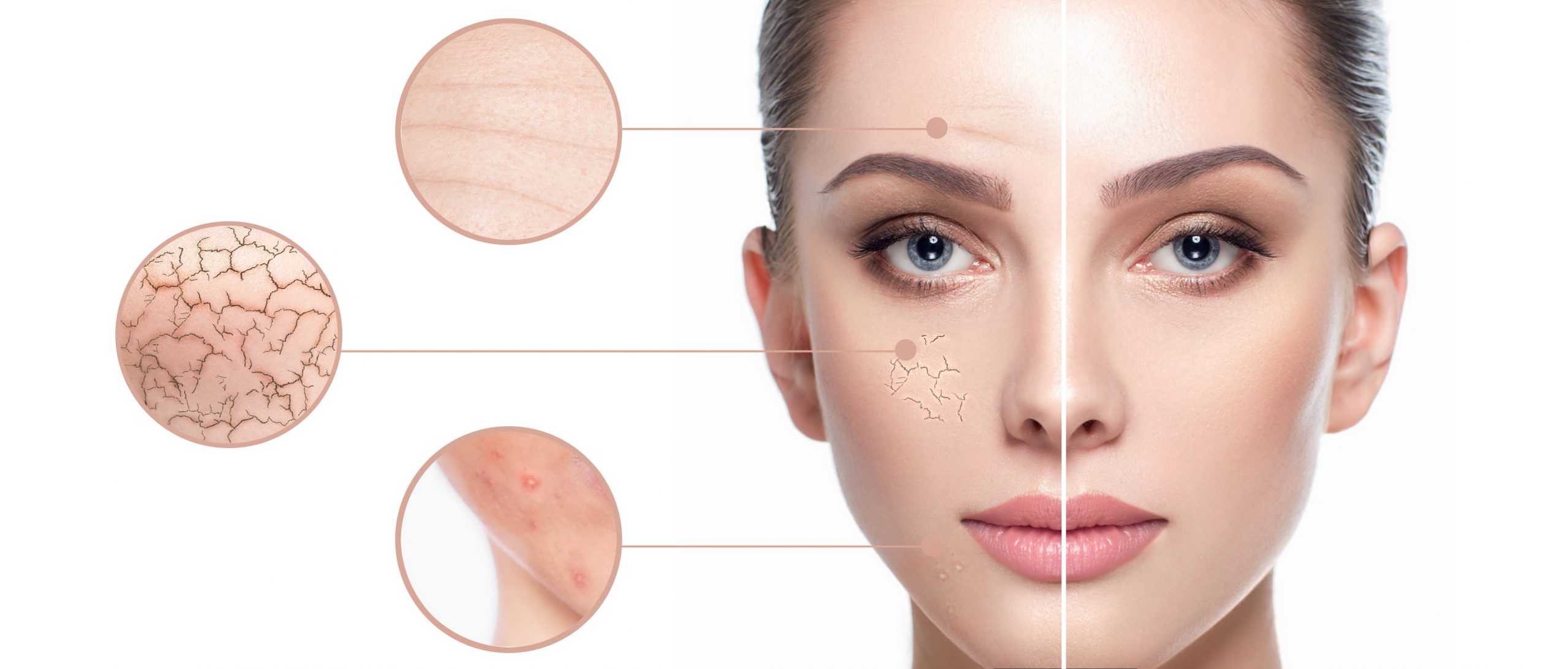Your cart is currently empty!

Herpes Simplex: caused by a rival infection, therefore it is highly contagious. It is characterized by erythema, pustules and vesicles (watery blisters) often grouped in a cluster around the mouth (herpes labialis). It is a recurring disease, and the skin treatment should be postponed until the condition recesses and two weeks after the lesions have disappeared. Can be spread to the fingers (herpes whitlow), eyes (corneal herpes) or genitals.
Impetigo Contagiosa: this is a spreading staphylococcal or streptococcal infection of the skin presenting a thin blister or oozing erosion which grows over several days into a honey colored crust. It is common in children and often spreads from the nostrils, which form a reservoir of bacteria for infection. Scratching and other members of the family are frequently affected. The condition is common during the summer months. In tropical countries sessions may be widespread and severe epidemics occur. It clears rapidly with antibiotic ointment.
Infected Acne: features are seborrhea (giving skin an oily appearance), comedones (blackheads), papules, pustules, nodules and cysts. There are different grades of acne (degrees of severity). A mild acne condition with comedones and one or two papules or pustules can be treated in the skin treatment center. However a more severe acne vulgaris or cystic acne with many comedones, papules, pustules, nodules and cysts may need medical treatment prescribed by a doctor or dermatologist. The Skin Therapist can still treat the inflammation and remove comedones and provide homecare advice.
Malignant Melanoma: this is the most serious form of skin cancer. It is a cancerous lesion frequently occurring on sun exposed sites. Classic findings are discolored patches on the skin surface with variations in color, brown, red, tan, irregular border and irregular surface. The Skin Therapist should always refer to a Dermatologist event if the session does not manifest all of the above markings.
Allergic Contact Dermatitis: an allergic reaction is seen as an abnormal response to a specific substance, brought about by antibodies in the blood. Dermatitis means sensitization of the skin, often red, itchy or burning, an irritation rather than a disease. Contact or allergic dermatitis is the most common form due to an allergic reaction to an ingredient coming into contact with the skin’s surface. These include cosmetics, laundry detergents, jewelry, clothing dyes or fabrics, even plants like poison ivy. Avoid treatment until this clears up. It is necessary for the therapist to be cautious in their product applications on an individual who has a history of previous allergies.